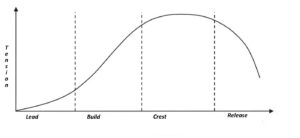What It Means When You’re Feeling Isolated In Relationship (And What To Do About It)
If you have ever wondered what it means when you’re feeling isolated in relationship (and what to do about it) you have found a great article that may help.
Feeling Isolated in Relationship?
The fact that you can feel isolated is great awareness! Imagine what relationship would be like without contrast. You’d never know from one moment to the next if you and your significant other were feeling close or distant, happy together or sad, lit up or lazy. Your relationship would exist as shades of beige, rather than the colorful, vibrant, living thing that it is, with all this lovely isolation in it.
That isolation you feel? Forget about the “why” of it and celebrate the clarity you have. You will figure out why you feel that later; what’s most important is that, right now, you are I-SO-LAY-TED. Are we clear? You got this.
Does This Happen Often?
Now that you’re clear about the feeling of isolation, ask yourself: does this happen a lot?
If the answer is yes, and you want to feel isolated a lot, skip the rest of this article. You’re doing fine. If you really care for your significant other, ask if that feeling of isolation is good for them, too. If so, you can both skip this article completely.
Just a guess: that probably wasn’t you.
If you feel isolated more than you want, that’s a good insight. You need something that isn’t available – yet – in your relationship.
You have two choices: either you abandon the relationship, or you change.
Yes: you change.
Let’s take the easy one first.
Abandon the Relationship
Instead of some vague feeling of unease, now that you have the clarity of your isolation you can act on it.
It’s fashionable to just leave a relationship if it’s not everything one wants, right? Yes, that can get much more complex if the relationship is a marriage, or involves kids or a business or anything you created together. There are relationships that just will never work, and breaking one of these can free both people to do better with another partner.
It’s difficult to be judgment-neutral about ending a relationship, especially when we’re the ones in it, but in the absence of our ability to change and a sustained commitment to that change, abandoning ship is often the way things go down.
What about that other option: change?
Personal Change
It’s a fact that you can’t change someone else by trying, but you can influence change by setting an example. That’s how it works. The question right now, though, is whether the isolation you feel is a big enough “why” for you to change.
We’re still not considering why you feel isolated. That’s not important, yet. What we want to know is whether your feeling of isolation has enough energy to change you. If it does, there’s no reason to end a relationship you’re about to bring your new, improved self into. You might be so amazingly changed that the relationship itself will also change. Isn’t that a you worth working for?
Yes: change is hard. But it’s entirely under your control. Usually, clarity and contrast are all one needs to initiate change. And this change you want for yourself has a decent chance of changing the relationship, too.
Ready for more?
How to Change
Mostly, when we are isolated, we want the opposite: connection, intimacy, closeness. We want to feel less like one of two islands in a big ocean together and more like the ocean itself: a vibrant, nurturing, environment where life and ideas thrive.
What’s the best way you can describe the opposite of isolation? Write it down somewhere. There’s more? Make a list. These are all things you want – all things you can choose now, especially since you know their opposite, isolation, is not what you want.
From that list, pick one thing you want. We’ll build a practice around that. Let’s take, for example, “closeness.” That’s fairly opposite to isolation, right? How would you start a closeness practice?
A Sustainable Change Practice of Closeness
Remember, this is about you. What you do influences others, especially in a relationship. You’re about to start an individual practice of closeness that will disrupt the relationship status quo, but this closeness is something you want, and isolation is the fuel that will power your change.
Begin by asking yourself how you extend closeness to others. How open are you to casual acquaintances? Are there small ways you could invite closeness? Do you, for example, initiate a smile to a homeless person on the street? Do you offer your seat on the subway to someone who seems to need a rest? Do you allow another driver to merge in front of you instead of speeding up?
With friends you know well, do you initiate the coffee talk? If you haven’t already done so, be the first to offer an invitation, or reach out with a phone call or text, or offer unsolicited words of encouragement.
Other possibilities will occur to you as you start to practice closeness in this way. It’s not rocket science. It’s simple. It’s what Gandhi called “being the change you want to see in the world.”
Since this is a practice, you can expect to improve at it the more you do it. Oddly enough, this kind of practice can become something you want to do and enjoy. That’s a sustainable change practice!
Try this with the other things on your list – the other opposites of isolation. Be gentle with yourself, and don’t get all judgmental about whether or not you see “progress.” This is a practice, after all!
Finally….
Your relationship. Haven’t forgotten about that. As you bring sustainable change practices into your life, they will also become a part of your relationship. That can take two forms:
- The change you want, which is good for you, is unwelcome in your relationship;
Or
- The change you want is good for both of you and creates a positive change in the relationship.
If your positive, sustainable change is good for you and not for the relationship, that’s contrast you can use to strengthen your resolve, perhaps even to leave the relationship. But, if your change is good for both of you, and you feel less isolated in the relationship, well, you’ve done it!
We all deserve pathways to our very best selves, best relationships, best lives.
You used the contrast of your isolation in your relationship to build a sustainable positive change. Huzzah! Well done! Teach this to someone you care for!
Stuck? Let Us Help.
We all could use a little help now and then! Feeling isolated can be a lonely place as you begin to practice connection. Accountability and a fellow traveler often help. You can do this. And you’re not alone. You can work alongside us to help supercharge your process. Contact us here.
More about ending isolation in this article, too.
What It Means When You’re Feeling Isolated In Relationship (And What To Do About It)



